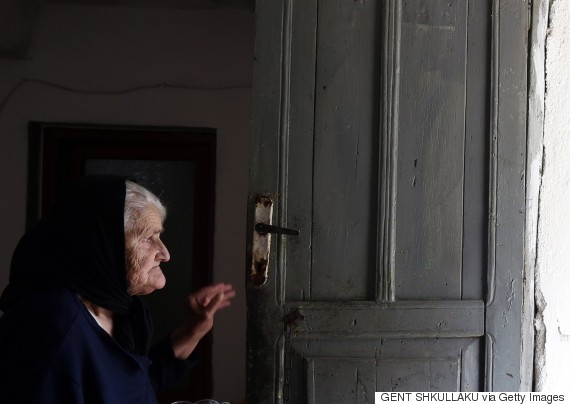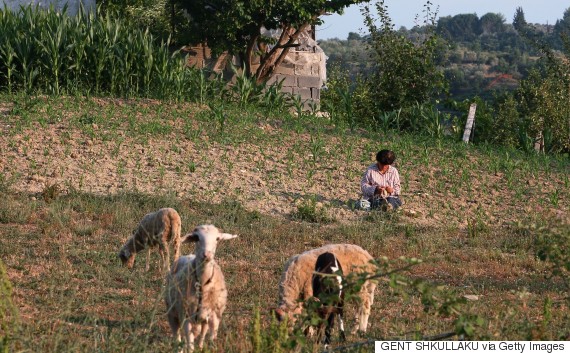
KAPSHTICA, Albania, July 8 (Reuters) - Sun-beaten and sullen, the four Albanian fruit-pickers returning home from a three-week stint working in Greece waved taxi drivers away at the border crossing because, they said, they could not afford the fare.
"This time we weren't paid," said one of the group, Mustafa Kullolli, 46, from the central Albanian town of Elbasan. "We were told we would get our 200 euros ($220) when the banks opened."
Greece's debt crisis is inflicting hardship on Greeks but the shockwave is fanning out too into its ex-Communist neighbors which are economically dependent on Greece and, because they are poorer, even less well equipped to deal with the consequences.
The potential impact on countries such as Albania, Kosovo, Serbia, Macedonia and Bulgaria is likely to be on the agenda of German Chancellor Angela Merkel - a central player in the Greek debt drama - when she visits the region starting on Wednesday.
With Greece losing its appeal as a source of earnings for Albanian migrant workers, more are heading to Germany instead. Some 16,000 Albanians have sought asylum in Germany from January to May, with 4,900 arrivals in May alone.

THE GREEKS HAVE NO MONEY
Kullolli and his three fellow cherry-pickers, who were crossing the border back into Albania on Tuesday morning, said to get back home they would try to find a free ride, or buy a bus ticket.
For the past three weeks, Kullolli and his group had been picking cherries and peaches in villages in the area of Edessa in northern Greece.
"The Greeks have no money, they are themselves in a crisis," he said. "They told us to come and work again in two weeks and get the money."
Among an estimated 600,000 Albanians who work temporarily in Greece, he and his friends had been making the trip for the past eight years. Things had been lean since the 2008 financial crisis but, he said, never so bad as now.
"They never kept money from us for agriculture jobs, but could do nothing about the banks this time," Kullolli said.
The economy in Albania, a country still struggling to shake off the legacy of its rule by Stalinist dictator Enver Hoxha, is heavily dependent on remittances sent back by people working in Greece. That cash fuels Albanian consumer spending, and funds the building of new homes.
At their peak before the financial crisis hit, remittances from Albanians abroad, mostly from Italy and Greece, amounted to 11.5 percent of gross domestic product.
As remittances shrank in the Greek slowdown in the past seven years, Albania's economy slowed too. Growth fell to 1.1 percent in 2013, its lowest in 16 years.

TIED TO GREECE
At the border, some enterprising Albanians had found a silver lining in Greece's troubles.
Customs officials said they had seen people crossing into Albania with second-hand tractors, possibly bought from cash-starved Greek farmers at firesale prices.
For most Albanians though, the closure of Greek banks, now in its second week, and the prospect of Greece exiting the euro zone was making an already tough situation worse.
Another party of returning cherry pickers said they were luckier; they had been paid by the farmer that hired them. But they said they saw no future working in Greece. The country "had gone to zero," one of them said near the border.
Driving a car stuffed with goods, Fredi Hyska, 32, an Albanian painter and decorator living in Greece's port city of Thessaloniki, said he could barely earn 500 euros a month lately, down from the 1,500 or 2,000 euros he used to get for painting jobs.
"We have felt the crisis deep down in our bones over the past five years," he said.
Yet many of the Albanians returning home said they would keep going to Greece because, even if things were bad there, they were still better than at home.
In Albania, per capita gross domestic product last year was about $4,619.2, while in Greece, despite the turmoil there, it was four times as much at $21,682, according to the World Bank.
"We are tied to Greece now, our children go to school there," Hyska, the painter, told Reuters. "We shall try to resist." (Editing by Christian Lowe and Peter Graff)
Related
Before You Go








